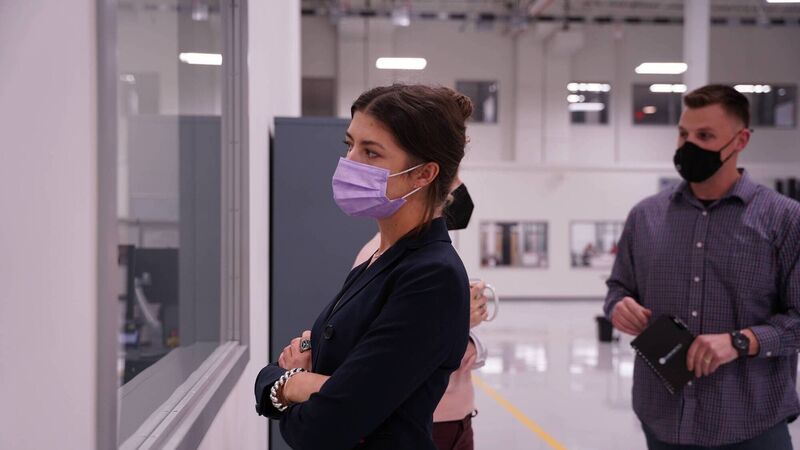Cork crash inspires US student's campaign for better car safety

Maria Kuhn visits a car testing facility during her campaign work.
A car crash in Cork which changed a US woman's life forever has inspired her to campaign for better car safety for women globally.
Maria Kuhn, 22, was in Ireland with her family during Christmas 2019 when they collided with another motorist driving on the wrong side of the road.










